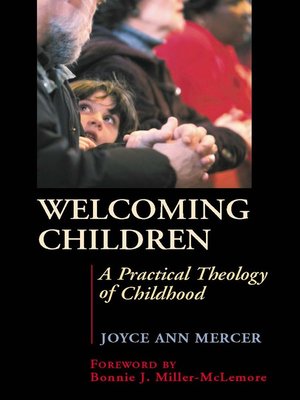
Sign up to save your library
With an OverDrive account, you can save your favorite libraries for at-a-glance information about availability. Find out more about OverDrive accounts.
Find this title in Libby, the library reading app by OverDrive.



Search for a digital library with this title
Title found at these libraries:
| Library Name | Distance |
|---|---|
| Loading... |
This book develops a theology of childhood both from a theoretical basis in biblical theology (especially the gospel of Mark) and practical experience in children and youth ministry. Mercer builds on classical theologians such as Augustine, Calvin, Barth, and Rahner as well as modern feminist theologians such as Brock and Russell. She gains insights from pastoral theologians such as Capps and Couture and from contemporary cultural criticism. Mercer challenges approaches to educational and liturgical practices with children in congregations that segregate children from the rest of the church and its key practices of service, mission, worship, care, and learning. She reframes ministries with children as processes through which the church as a "community of practice" forms children into an alternative identity that resists surrounding consumerist culture and walks in the ways of Jesus. This book offers strategies for educational practices with children in congregations as it seeks to address the question, "What might educational practices that welcome children and contribute to their flourishing look like in the context of a faith community where children's learning happens in collaboration with experienced practitioners of faith?" Outlining a feminist practical theology of childhood, it explores five basic theological claims: (1) children as gifts and parenting as a religious practice of stewardship; (2) welcoming those who welcome and care for children; (3) children as already fully human; (4) children as part of the purposes of God; and (5) acknowledging and transforming the sufferings of children.







